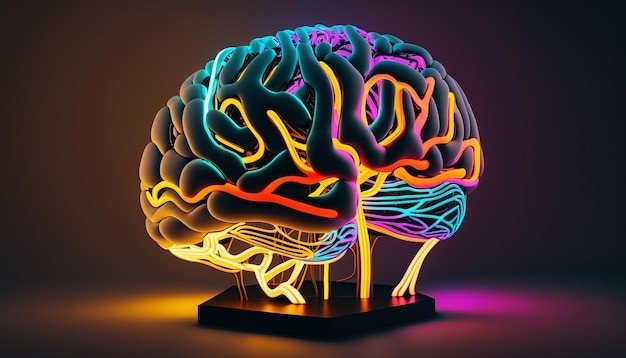chatgt stands as a marvel in today’s tech landscape, a creation born out of the advanced realms of artificial intelligence. It’s designed to understand and respond to human language in a way that feels incredibly natural. This AI, developed by OpenAI, is based on a type of machine learning model known as a Generative Pre-trained Transformer (GPT). Its purpose? To generate human-like text based on the input it receives, making it an invaluable tool across various applications.
Table of Contents
The beauty of chatgt lies not just in its ability to converse but in its wide-reaching implications for technology’s role in daily life. From simplifying tasks to providing company and enhancing customer service, chatgt is like a new kind of helper that’s always ready to assist. But its function goes beyond just assistance; it’s an evolving platform that continues to learn from interactions to improve its responses and utility.
The Evolution of chatgt and Its Capabilities
The journey of ChatGPT began with OpenAI’s first iteration of the Generative Pre-trained Transformer, known as GPT. Over time, through GPT-2 and GPT-3, the model has vastly improved in understanding context and generating more coherent and contextually appropriate responses. The key advancement in chatgt was its training on a diverse dataset from books, websites, and other texts, enabling it to learn a wide variety of language patterns and knowledge.
As chatgt evolved, its capabilities expanded beyond mere text generation. Now, it can participate in complex conversations, translate languages, summarize texts, and even generate content that adheres to specific styles or requirements. This versatility makes it an indispensable tool for developers, researchers, and businesses aiming to enhance their engagement through technology.
How chatgt is Being Used Today
In the modern world,chatgts applications seem boundless. In customer service, it powers chatbots that handle inquiries and support tickets around the clock, improving response times and customer satisfaction. Educators use ChatGPT to develop tutoring systems that provide personalized learning experiences to students. Additionally, in the creative industries, from writing to music, ChatGPT assists creators in generating innovative ideas and content.
The business sector has particularly benefited from ChatGPT’s integration. It streamlines operations by automating routine communications and providing insights from data analysis, significantly cutting down on the workload for human employees. This not only boosts efficiency but also allows companies to redeploy their human resources to more critical, strategic roles.
ChatGPT and SEO: Enhancing Content Creation
ChatGPT is also transforming SEO content creation. By generating articles, blog posts, and content strategies based on keyword inputs, it provides a base for SEO specialists to build upon. It’s particularly effective in creating draft articles that can be refined by human editors, ensuring that the final content is both SEO-friendly and engaging for readers.
The AI’s ability to analyze and generate content that includes specific keywords helps websites improve their search engine rankings. This makes ChatGPT an essential tool for digital marketers who need to consistently produce high-quality, search-optimized content. As Google’s algorithms continue to emphasize the importance of relevant and helpful content, ChatGPT’s role in SEO is only set to grow.
The Benefits and Challenges of Implementing ChatGPT
Implementing ChatGPT offers numerous benefits, such as increased efficiency, reduced costs, and enhanced customer engagement. However, it’s not without challenges. The primary concern is the ethical use of AI, especially regarding privacy and data security. There’s also the risk of dependency where over-reliance on AI could potentially lead to diminished human oversight.
Another challenge is managing public perception and trust in AI technologies. Businesses must address these concerns transparently, ensuring that they’re using AI like ChatGPT responsibly and ethically. As AI continues to evolve, so too must the strategies for its implementation and the regulations that govern its use.
Optimizing Your Interaction with ChatGPT
To get the most out of ChatGPT, it’s essential to understand best practices for interaction. Users should provide clear, concise inputs to receive the most accurate responses. Regular updates and training sessions can help keep the AI tuned to the latest information and practices. Additionally, users should regularly review the AI’s outputs for accuracy and appropriateness, particularly in sensitive contexts.
Customizing the AI’s settings to match specific needs can also enhance its utility. Whether it’s setting the tone of responses, adjusting the formality, or specifying the type of content, these adjustments can make ChatGPT a more effective tool for your requirements.
The Future of ChatGPT and Conversational AI
Looking ahead, the potential for ChatGPT and conversational AI is immense. We can expect further advancements in AI technology, making these tools even more sophisticated and integrated into daily activities. The future may bring more intuitive AI that can understand and mimic human emotions more effectively, providing a more personalized and engaging user experience.
As AI technology continues to evolve, it will likely become a more prominent player in global industries, from healthcare to finance to education. The continuous improvement in AI models, coupled with growing acceptance and reliance on AI technologies, heralds a transformative future for conversational AI.
Conclusion
ChatGPT represents a significant advancement in the field of artificial intelligence. With its ability to process and generate human-like text, it offers a wide range of applications that can revolutionize industries and enhance our daily lives. As we continue to explore and expand the capabilities of such technologies, it is vital to consider the ethical implications and ensure they are used for the betterment of society.
Read More:Alizeh Keshvar Davis Jarrahy
